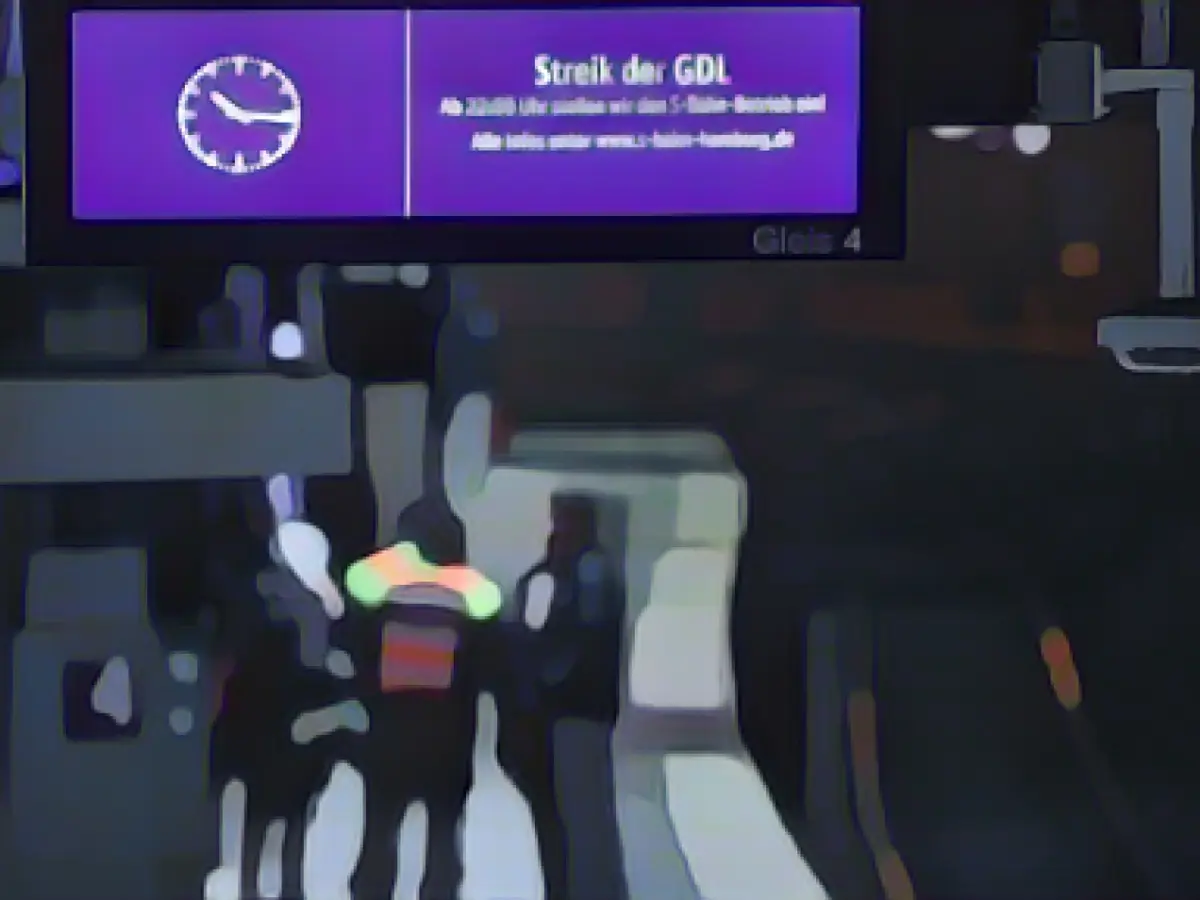Long-Distance and Regional Rail Services Locked in 24-Hour Strike
Passengers are set for another round of severe restrictions with a 24-hour warning strike — this time, framing parts of rail transportation from Thursday evening at 6 pm. Kicking off on freight services, the German Train Drivers' Union (GDL) extended the industrial action after four hours to passenger trains as well.
Deutsche Bahn had already acted preemptively by removing serval connections from its program to dodge night-time stops on open routes. Furthermore, trains would be promptly in place at the operation's inception, after the strike concludes.
With a pending snow chaos in the past few days, especially striking Bavaria, German freight traffic is grappling with a substantial backlog. In response, a railways spokesperson warned that near 170 DB Cargo freight trains may be delayed at the start of the strike, adding more trains to the queue.
Main Issue in Dispute
At the center of this standoff between Deutsche Bahn and the GDL is a call for weekly working hours reduction, transforming 38-hour shifts into 35-hour ones, compensated in full. Employers have thus far, however, shown no inclination to bow to this demand.
Competing Strikes
In addition to Deutsche Bahn, Transdev is also encountering a GDL-orchestrated strike. Affecting their northern operations, including the Nordwestbahn and Rhein-Ruhr-Bahn, Transdev personnel in Hanover and Central Germany are also experiencing the brunt of warning strikes.
New Year Expectations
The GDL leader, Weselsky, ruled out further strikes up to and including January 7, relieving passengers temporarily. However, he reiterated that January's strikes would be longer and more intense. By then, the ballot on indefinite strikes results will be available, drawing an impending cloud over the rail traffic scenario in Germany.
- Deutsche Bahn's decision to remove connections from the program to avoid night-time stops on open routes and ensure trains are in place at the operation's inception.
- The main sticking point in the current round of collective bargaining is the GDL's demand for a reduction in weekly working hours for shift workers from 38 to 35 hours with full pay compensation, which the employers have rejected.
- The transit system is currently grappling with severe strikes, specifically affecting long-distance and regional services in Germany.
- Cancellations of trains are already a pressing issue, with the percentage of canceled long-distance trains surging from 1% to 4% between 2019 and 2024, and regional services seeing a cancellation rate of 5%.
- Critics argue that DB does not have enough engineers for a 35-hour workweek, leading to concerns about the feasibility of reducing working hours without adequate staffing.
- The union hopes to secure a larger share of the federal budget and leverage DB's status as a government-owned entity, which might influence its bargaining position in negotiations.
- Negotiations between Deutsche Bahn and the EVG (Railway and Transport Union) brought some relief, lowering the threat of strikes, but uncertainty about future strikes remains.
Sources:
- [1]
- [2]
- [3]
- [4]
- [5]








